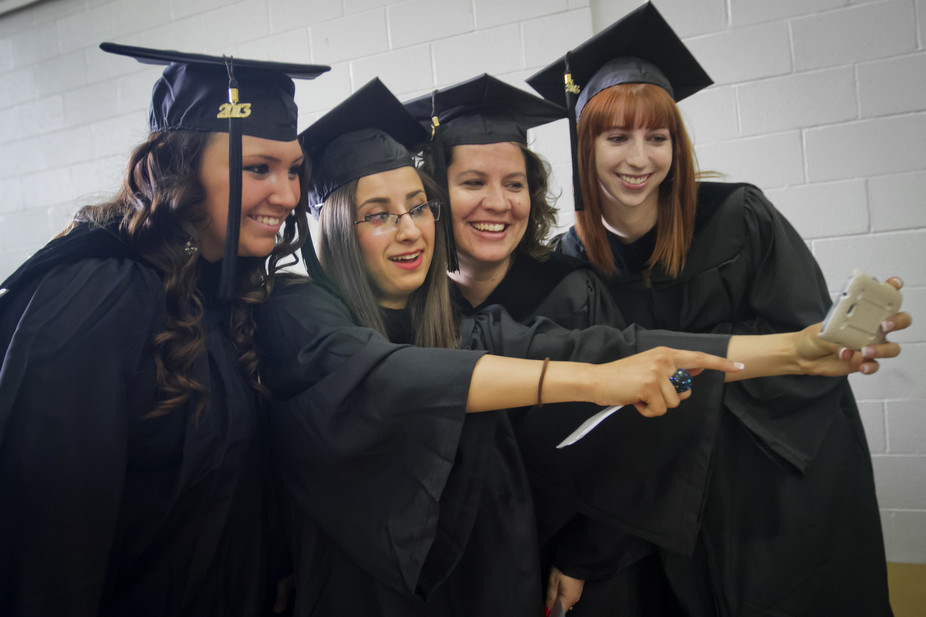Let’s face it: gender bias in academia is for real

Cynthia Leifer, Cornell University; Hadas Kress-Gazit, Cornell University; Kim Weeden, Cornell University; Marjolein C H van der Meulen, Cornell University; Paulette Clancy, Cornell University, and Sharon Sassler, Cornell University
Cornell Professor Sara Pritchard recently made the argument in The Conversation that female professors should receive bonus points on their student evaluations because of the severe negative bias students have toward their female professors.
Commentators on FOX News attempted to discredit her argument as “insane,” ridiculed the idea that gender plays a role in evaluations and repeatedly mentioned a lack of data to support her claims. But the reality is women faculty are at a disadvantage.
Unfortunately, as we well know, for many women in science, technology, engineering and mathematics (STEM), the path to academia ends long before they obtain a faculty position and are the “lucky” recipient of biased student evaluations.
We represent the success stories – women with careers at Ivy League universities. And yes, while we agree that there are more women in STEM fields today than ever before, bias still affects women in STEM, and not just in student evaluations.
Letters of recommendation and teaching evaluations
It starts right from the hiring process.
In the first stage of the hiring process, a candidate for an academic position must be selected from a pool of hundreds to give a job talk and on-site interview.
The decision of who to invite for a job talk is based on materials about the candidate including CVs, letters of recommendation from prominent figures in the field, samples of research, “buzz” about who’s a rising star and teaching evaluations.
A large body of research shows that many of these materials, and how they are evaluated by search committees, reflect bias in favor of male candidates.
Letters of recommendation, for example, tend to have a very different character for women than for men, and their tone and word choice can affect the impression that the hiring committee forms about candidates.
For example a 2008 study of 886 letters of recommendations for faculty positions in chemistry showed that these letters tended to include descriptors of ability for male applicants, such as “standout,” but refer to the work ethic of the women, rather than their ability, by using words such as “grindstone.”

It turns out that female candidates are seen as less hireable as well.
Mike Licht, CC BY
A similar study showed that female, but not male, students applying for a research grant had letters of recommendation emphasizing the wrong skills, such as the applicants’ ability to care for an elderly parent or to balance the demands of parenting and research.
Furthermore, a 2009 analysis of 194 applicants to research faculty positions in psychology found that letters of recommendation for women used more “communal” adjectives (like helpful, kind, warm and tactful), and letters of recommendation for men used more decisive adjectives (like confident, ambitious, daring and independent), even after statistically controlling for different measures of performance.
Perhaps not surprisingly, a follow-up experiment in the same paper found that these subtle differences in the language can result in female candidates being rated as less hireable than men.
Unfortunately, even when the same language is used to describe candidates or when the key objective criteria of productivity are used, evaluators rated female candidates lower than male candidates.
Teaching evaluations, as our colleague already pointed out, are also known to be biased.
Historian Benjamin Schmidt’s recent text analysis of 14 million rankings on the website ratemyprofessor.com showed substantial differences in the words students used to describe men and women faculty in the same field: men were more likely to be described as “knowledgeable” and “brilliant,” women as “bossy” or, if they were lucky, “helpful.”
If a female candidate makes it through the “on paper” process and is invited for an interview, the bias does not end.
What makes a ‘fit’?
Once a field of candidates is narrowed down from hundreds to a handful, very little distinguishes the top candidates, male or female. Final decisions often come down to intangible qualities and “fit.”
Although “fit” can mean many things to many people, it boils down to guesses about future trajectories, judgments about which hole in a department’s research profile or curriculum is most important to fill, and assessments about whether a person is going to be a colleague who contributes to mentoring, departmental service, and congeniality.
Research in social psychology and management shows that women are seen as competent or likable, but not both. The very traits that make them competent and successful (eg, being strong leaders) violate gender stereotypes about how women are “supposed to” act. Conversely, likable women are often perceived as being less likely to succeed in stereotypically male careers.
Despite all this information, FOX News isn’t alone in its view that women candidates for academic positions are not at a disadvantage.
In fact, one of the commentators in that segment cited a study from other researchers at Cornell that concluded the employment prospects for women seeking faculty positions in STEM disciplines have never been better.
The authors of that study go so far as to blame women’s underrepresentation in the sciences on “self-handicapping and opting out” of the hiring process.
Women doing better, but not better than men
The fact is at the current rate of increase in women faculty in tenure-track positions in STEM fields, it may be 2050 before women reach parity in hiring and, worse, 2115 before women constitute 50% of STEM faculty of all ranks.
This is supported by faculty data at Cornell itself. Between 2010 and 2014, there was only a modest 3%-4% increase in women tenure-line STEM faculty.
In contrast to these data, the study cited by FOX News argued women are preferred to men for tenure-track STEM academic positions. The authors of that study used a research method common in social sciences in which true randomized experiments are impossible to carry out in real-life contexts called an audit study.
In an audit study, people who make the relevant decisions, such as faculty or human resource managers, are sent information about two or more fake applicants for a position. The information is equivalent, except for a hint about the question of interest: for example, one CV may have a male name at the top, the other CV a female name.

The battle against sexism has yet to be won.
European Parliament, CC BY-NC-ND
Although the audit study design can be very useful, in the case of STEM faculty hiring it oversimplifies the complex hiring process, which typically involves many people, many stages and many pieces of information.
The authors sent out equivalent descriptions of “powerhouse” hypothetical male or female candidates applying for a hypothetical faculty opening to real professors. Among the respondents, more said that they would hire the woman than the man. However, the study in question “controlled for,” and thus eliminated, many of the sources of bias, including letters of recommendation and teaching evaluations that disadvantage women in the hiring process.
Furthermore, only one-third of faculty who were sent packets responded. Thus, the audit study captured only some of the voices that actually make hiring decisions. It is also hard to believe that participants didn’t guess that they were part of an audit study about hiring. Even if they didn’t know the exact research question, they may have been biased by the artificial research context.
The study by our Cornell colleagues has already generated a lot of conversation, on campus and off. The authors have entered this debate, which will undoubtedly continue. That’s how science works.
Contrary to what FOX News and some of our academic colleagues think, the battle against sexism in our fields has not been won, let alone reversed in favor of women. We must continue to educate hiring faculty, and even the society at large, about conscious and unconscious bias.
Paulette Clancy, Hadas Kress-Gazit, Cynthia Leifer, Marjolein van der Meulen, Sharon Sassler, and Kim Weeden are professors at Cornell University. Hadas Kress-Gazit, Cynthia Leifer and Kim Weeden are also Public Voices Fellows at The Op-Ed Project.
![]()
Cynthia Leifer, Associate Professor of Immunology, College of Veterinary Medicine, Cornell University; Hadas Kress-Gazit, Associate Professor of Mechanics and Aerospace Engineering, Cornell University; Kim Weeden, Professor of Sociology, Cornell University; Marjolein C H van der Meulen, Professor of Biomedical Engineering, Cornell University; Paulette Clancy, Professor of Chemical Engineering, Cornell University, and Sharon Sassler, Professor of Policy Analysis and Management , Cornell University
This article was originally published on The Conversation. Read the original article.
Read all of our posts about HBCUs by clicking here.



